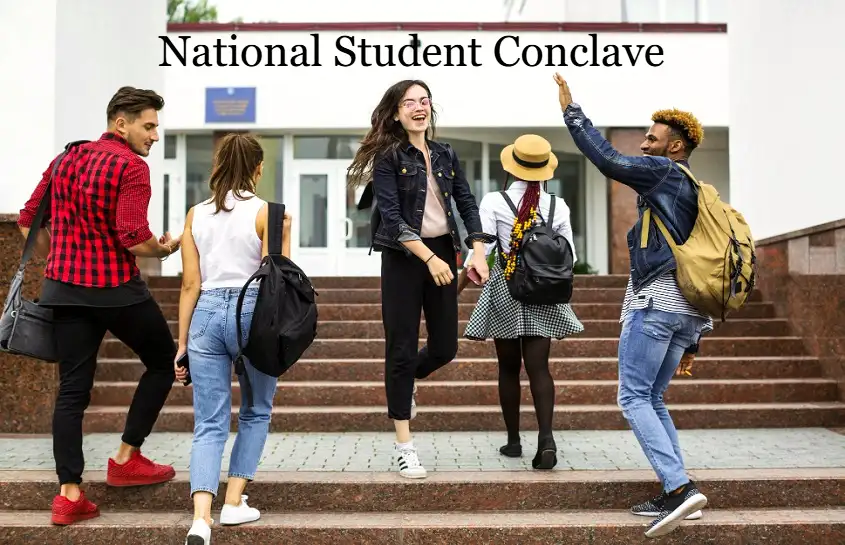I want to tell you something straight from my own journey — something I wish I had known much earlier. When I started physical therapy school, I thought success was just about grades, clinical hours, and getting through exams. That’s what most of us believe, right? You pass the classes, do your rotations, then suddenly you’re a licensed PT and everything falls into place.
It doesn’t really work like that.
Somewhere between the first anatomy lab and my first patient evaluation, I started realizing that being good at physical therapy isn’t just about memorizing muscles or practicing manual techniques. It’s also about understanding the bigger picture — how the profession works, how people build careers, and how we connect with each other. And for me, the moment that understanding really started was when I attended the National Student Conclave.
My First Step Into the APTA National Student Conclave
I didn’t even plan to go at first. One of my classmates mentioned the APTA National Student Conclave, and I sort of brushed it off. I figured it was just another conference — people in suits talking about things that probably wouldn’t matter to me until after graduation.
But curiosity got the better of me. I signed up for the National Student Conclave physical therapy event in my second year. And honestly? It was nothing like I expected. From the minute I walked into the venue, I could feel this buzz — a mix of excitement and nerves — from hundreds of students who were just like me: motivated, slightly lost, and hungry for direction.
A Place Where Questions Actually Get Answered
The first session I attended wasn’t about science or theory. It was about careers — real conversations about what happens after school. There were speakers who had gone into sports rehab, pediatrics, neuro, geriatrics… even some who had started their own clinics. And they didn’t sugarcoat anything. They talked about mistakes, burnout, first jobs that didn’t work out, and how they learned to find their place in the field.
Hearing those stories changed something in me. I stopped seeing my future as this fixed path — school, board exam, job — and started seeing it as something I could shape. It’s hard to explain, but when you listen to someone who was once exactly where you are now, and they tell you how they figured it out, you suddenly believe you can figure it out too.
Lessons You Don’t Get in the Classroom

There’s a lot PT school doesn’t teach you. Things like how to network without feeling awkward. Or how to talk about your skills in a job interview. Or even how to read a contract before you sign it. These were the kinds of sessions I found most useful at National Student Conclave.
One workshop I remember clearly was about advocacy. At first, I didn’t think it mattered — I just wanted to treat patients, not deal with laws and policies. But then a speaker explained how legislation directly affects what we can do as therapists and how much access patients have to care. That was a wake-up call. I left that session thinking, “Wow, we’re part of something much bigger than the clinic.”
Conversations That Change Everything
But the real magic of the APTA National Student Conclave isn’t in the sessions. It’s in the conversations you have in hallways, during lunch breaks, or while waiting for a panel to start.
I met a student from another state who was doing her last clinical in a pro sports facility — she gave me advice on how she built the connections to land that placement. I chatted with a new grad who had just accepted a residency offer and shared what the interview process was like. I even met a professor who encouraged me to consider research — something I’d never seriously thought about before.
Those conversations were worth more than any textbook chapter I had ever read. They were real. Honest. And they reminded me that everyone — even the people who seem like they have it all figured out — started out unsure.
The Confidence I Didn’t Know I Needed
Before NSC, I used to feel small when I thought about the future. Like I wasn’t ready or good enough. But after a few days surrounded by people who were walking the same path, I started to feel something I hadn’t felt before: confidence.
I realized I didn’t have to know everything right now. I just needed to be curious, open, and willing to learn. And I wasn’t alone — every single person in that room was figuring it out too. That realization was empowering.
How It Changed My Outlook on the Profession
I went into the National Student Conclave physical therapy event thinking it would be a one-time experience. Instead, it shifted how I see this career.
Physical therapy isn’t just about anatomy or modalities. It’s about people — patients, mentors, colleagues, and even lawmakers. It’s about communication, leadership, and advocacy. It’s about building a future where we’re not just providers, but voices that shape healthcare itself.
And NSC taught me that students have a role to play in that. Not later. Now.
My Advice If You’re Thinking About Going

If you’re reading this and wondering whether the APTA National Student Conclave is worth your time or money, let me tell you this: it absolutely is. But you’ll only get out of it what you put in. Here’s what helped me make the most of it:
- Talk to people. Even if you’re shy. Start conversations. They often lead to opportunities.
- Go to sessions outside your comfort zone. The ones you think aren’t “for you” are often the ones that change your perspective the most.
- Ask questions. Speakers, panelists, other students — everyone has something valuable to share.
- Follow up. Don’t let the connections you make end when the conference does. Stay in touch.
Final Thoughts: It’s More Than an Event
Looking back now, I realize that attending the National Student Conclave was a turning point for me. It’s not just a few days of lectures and networking — it’s an experience that stays with you long after you leave. It gave me direction when I felt lost. It gave me mentors when I didn’t know where to look. And it reminded me that this profession is about more than just physical recovery — it’s about human connection and collective growth.
If you’re serious about physical therapy — not just as a career but as a calling — go. Even if you feel unsure. Even if you’re not ready. Especially if you’re not ready. Because chances are, you’ll walk away with a clearer sense of purpose than you’ve ever had before.
